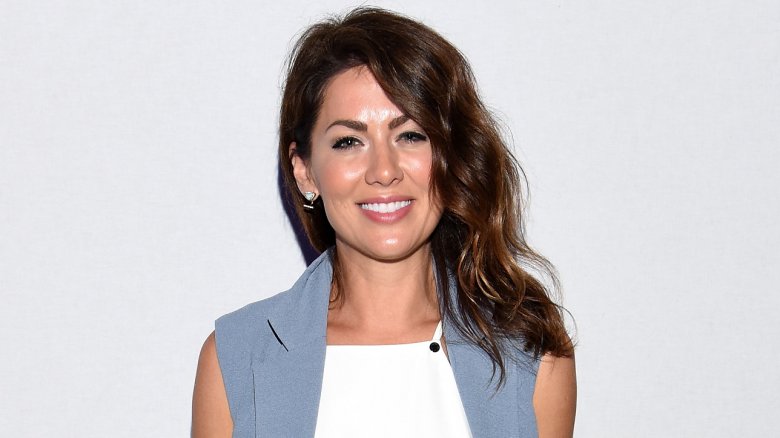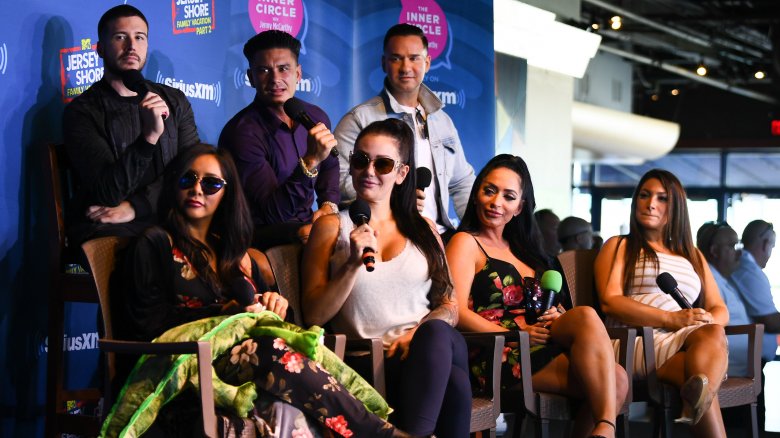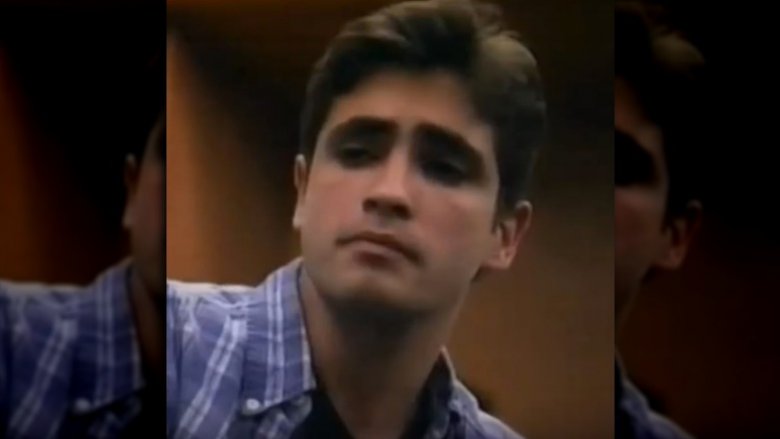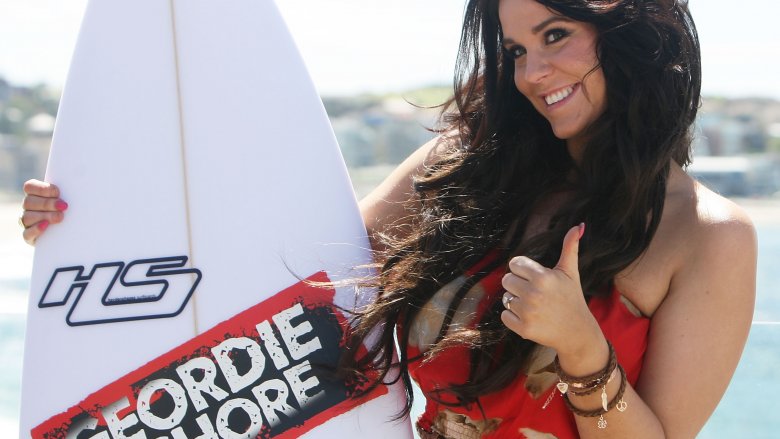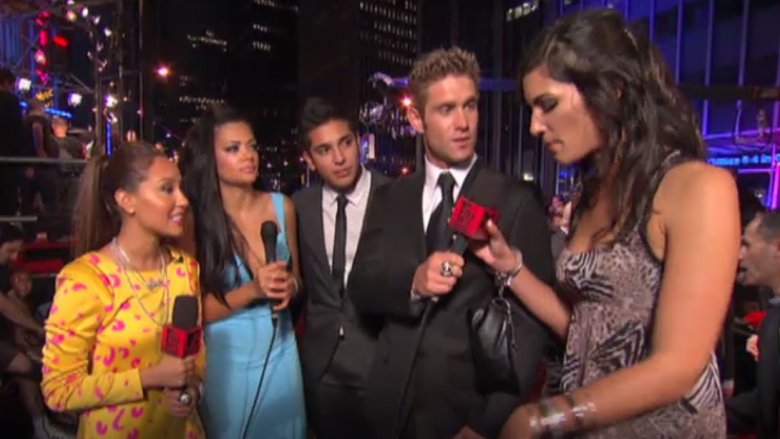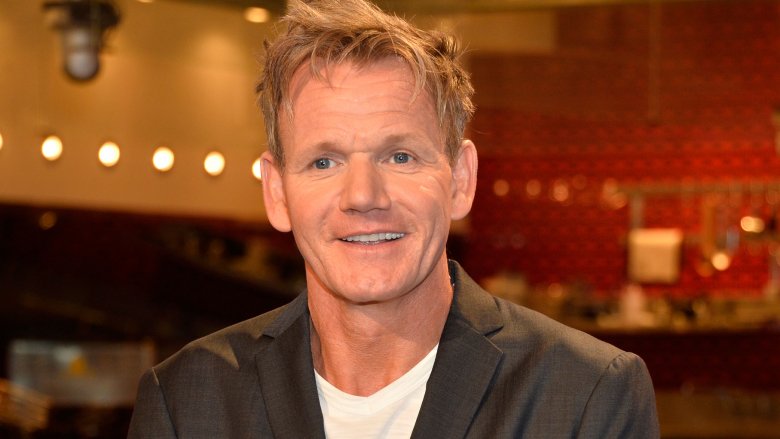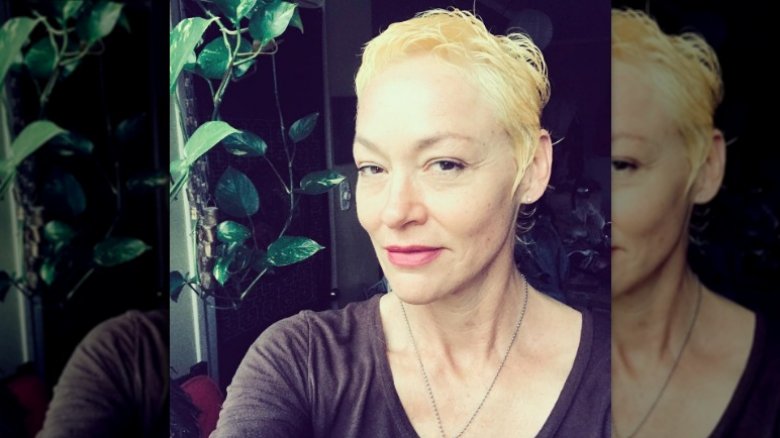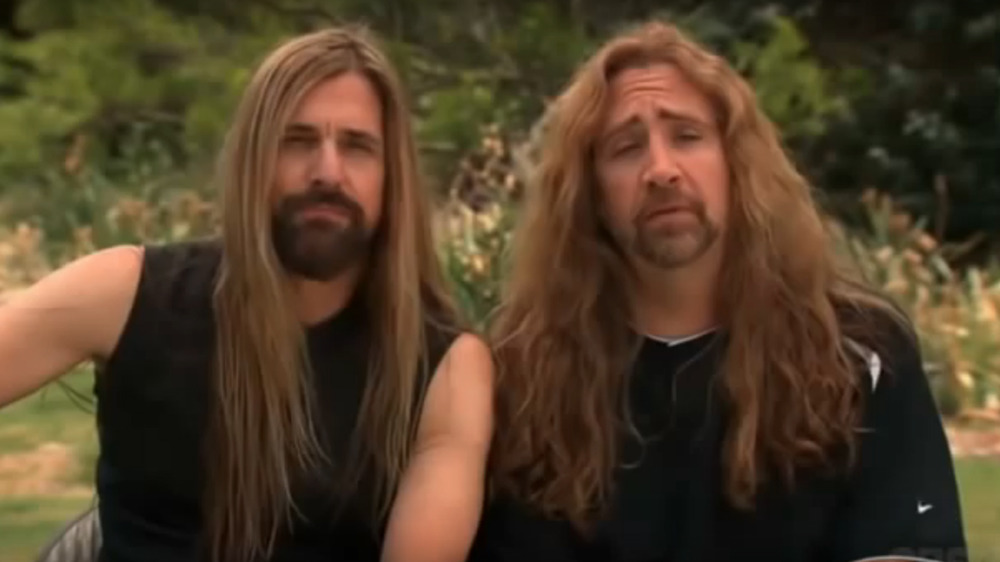Crazy Sacrifices People Made To Get On Reality TV
It's no secret that reality TV plucks regular people out of normalcy and thrusts them out of their comfort zone, exposing their entire lives for the masses to see. Even the name, reality TV, suggests exactly what fans expect from these shows — real people in real, raw situations. Of course, airing your dirty laundry to the world is a sacrifice in itself, as privacy goes right out the window. Some reality TV stars have complained about this, like Khloe Kardashian in her meltdown over her messy public breakup from Tristan Thompson. Other reality celebs, on the other hand, understand that it's just part of the gig. As Big Brother's Imogen Thomas explained to The Telegraph, "I believe when a reality star opens their doors to the extent that they do, they cannot complain the next day if something bad is written about them."
The privacy issue is just the tip of the iceberg when it comes to the crazy sacrifices people make for their chance at 15 minutes of fame. Fueled by promises of fame and potential paychecks, these future celebrities will agree to seemingly anything, giving up much more than privacy. From contacting foreign diseases, to giving up jobs, to stripping down past their skivvies, here are some wild sacrifices people made to be reality TV stars.
They'll do anything for love
The depths people go through to find true love are vast and extreme. ABC's hit show The Bachelor banked on this fact, and became a global phenomenon, spawning as many as 37 different versions of the show, according to Insider. Season after season, a plethora of men and women sign up for the series, giving up huge chunks of their lives for a chance of finding their prince or princess. Per Market Watch, contestants lose all forms of media during the time they're on the show, including "their phone, the internet [and] television." If selected, the participants get up to three weeks to inform their employers "they will be gone for anywhere from a week to a month and a half." Naturally, many contestants end up quitting their jobs and losing all sources of income. As a former contestant, JJ Lane told Market Watch, "I had to set up auto bill pay and give my parents my deposit slips and access to email passwords."
Contestants are also "not paid for their time on the show," per Market Watch. To make matters worse, they also spend their own money on "a TV-ready wardrobe!" Considering the goal is to impress a specific person, a lot of money goes into buying clothing and makeup. As The Bachelor and The Bachelorette veteran Jillian Harris (above) talked about her experience on her blog, "I had re-mortgaged my house and I spent something like $8,000 on clothing." Yikes!
The Jersey Shore cast started off with $10 an hour
Love it or hate it, there's no denying that The Jersey Shore was a cultural phenomenon when it came out in 2009. Taking the world by storm, our favorite fist-pumpers came back season after season. They traversed to Miami after New Jersey, and even trod across the pond to visit their "roots" in Italy.
What's interesting about all this is that when the cast signed up, they had no idea the impact the show would have on pop culture. As Jenni "JWoww" Farley recalled to Vulture, she only knew she was trying out for a new show tentatively titled, Number One Guidos. "I walked into a hotel in Jersey, gave them my cell phone, my credit card, my ID, my wallet, keys to my car." After handing over her personal belongings, she was told that she would be home in five weeks if she was cast as one of the stars. In situations like these, reality TV stars usually have to quit their jobs, as going away for an indefinite amount of time doesn't sit well with employers. Vinny Guadagnino noted in the same Vulture interview that he and Ronnie Ortiz-Magro almost quit after the first week since all the money they made was at their part-time job at the Shore Store! Making $10 (to start) an hour at the shop, it's a blessing that the show grew to become the cultural monster it was.
This activist left a lasting impact on reality TV
One of the original reality TV shows that challenged our concepts of different social, cultural, and political views, The Real World premiered on MTV in 1992, shaking up small screens across the country. The third season in 1994, The Real World: San Francisco, gave light to a new star, Pedro Zamora, a Cuban-American man, whose casting made him "the first openly gay, HIV positive man on television," according to the MTV biopic film, Pedro. That alone took immeasurable courage, but Zamora used his celebrity to propel his activism further, even going so far as to testify before Congress to raise awareness for HIV/AIDS prevention. Zamora lost his battle with AIDS the day after his Real World season finale premiered, having spent the last few months of his life educating his housemates about HIV transmission.
His legacy has lived on, with transgender cast member Katelynn Cusanelli from Season 21, a massive fan of Zamora's. As she explained to the Los Angeles Times, "It was him and Ruthie, pretty much, from 'Hawaii,' those were my role models growing up on television." Executive producer of The Real World Jonathan Murray put it perfectly to MTV News, "When we cast Pedro ... we had no idea the impact he would have on our society, our culture and putting a face on AIDS. We're proud to have helped introduce him to the world, and we're proud that 20 years later, his impact is still being felt."
The sacrifice that left contestants unrecognizable
The early 2000s were a brazen period for reality TV. Fox's The Swan, in particular, was shocking, with The New York Times even posing the question of whether or not the series was "dehumanizing and mean." Setting out to give extreme plastic surgeries to self-proclaimed "ugly ducklings," the show then pitted contestants against one another in a live, televised beauty pageant.
Essentially giving up their entire physical appearances in the name of glory sounds like the ultimate sacrifice to us — and one that sometimes doesn't even have a payoff. Opening up to New York Post, Lorrie Arias (above), a former contestant on the show, underwent $300,000 worth of surgery for the world to see. She has since suffered after her 15 minutes of fame expired. "I am agoraphobic, on meds and unable to enjoy life," she explained, admitting to having "bipolar disorder, lupus, depression."
While Arias is quick to blame The Swan for her misfortunes, other alumni of the series offer their own two cents. Season 1 winner Rachel Love agrees with Arias that the show's producers should have offered more support after the airing of the seasons, yet also understands that "Reality shows aren't there to guide you for the rest of your life."
Reading wasn't 'on-brand' for this raunchy series
Cashing in on the success of MTV's Jersey Shore, the UK-based Geordie Shore was Newcastle-upon-Tyne's answer to New Jersey's fist-pumping party scene. It was so brash, in fact, that it made its American older sibling look like a tame after-school special. Raising eyebrows from the local community to the point of the Newcastle MP telling the ChronicleLive that the show was "bordering on pornographic," Geordie Shore pushed buttons.
With its producers doing everything in their power to maintain a particular image for the show, some cast members found difficulty keeping up with the facade. Fan-favorite since the first season, Vicky Pattison (above), said goodbye to her castmates after being on the show from 2011 to 2014. Speaking to The Daily Star, she explained that her decision to leave the loud MTV series came to fruition after she attempted reading a book on the show. "I picked up a book and before I knew it, someone came running in, snatched it and ran off. This person is saying: 'Vicky's got a book, where did Vicky get a book from, get it off her.'" With the producers telling Pattison that reading wasn't "on-brand," she decided she wanted to grow up. "I wasn't ready, I wasn't willing to sacrifice my life for that invasion. Fame is not that important."
Demanding 'blanket rights' to every star's life story
The original bulldozer of destroying societal norms, The Real World catapulted itself into the mainstream with the premise of "seeing what happens when people stop being polite and start getting real." Season after season, cast members gave up every inkling of solitude they had in their lives, with their contracts even granting producers "blanket rights" to their life stories.
In 2016, a Real World: Cancun (partial cast pictured above) star dished exclusively to Cracked about the ins and outs of the show, giving fans insight on just how little privacy the temporary celebs actually got. They "were mic'd while they slept, ate, and even while they s**t" causing them to start inventing ways of talking in private, such as going to the ocean where the microphones couldn't follow.
If not having a moment to yourself isn't enough to stress you out — the paycheck certainly would. The anonymous castmate went on to reveal that they were only paid $300 a week — peanuts if they had rent and bills to pay back home. "We had to buy our own food, too. Aside from our living accommodations and our hookups for drinks in the club, we had to pay for everything." Surely, the fifteen minutes of fame must have paid off, right?
A pastry chef's prison
It's no secret that the notoriously turbulent Gordon Ramsay pushes his contestants to the brink on Hell's Kitchen. It turns out, however, that the emotional sacrifice contestants make isn't the only one they're left dealing with.
Jen Yemola, a Pennsylvania pastry chef who appeared on the 2007 season, revealed to The New York Times that the show treated its contestants like "convicts." Shocked at the time, Yemola said she found herself locked in a hotel room for "three or four days" before production started. "They took all my books, my CDs, my phone, any newspapers. I was allowed to leave the room only with an escort. It was like I was in prison." She went on to explain that the production crew wouldn't talk to the stars either, seemingly another dig to "make you feel your most insecure."
Although the time on the show is demanding both before and during production, most of the contestants don't regret their time dealing with Ramsay's tyrannical outbursts. As Andrew Bonito told The New York Times, the series helped him "grow professionally," adding, "It definitely contributed to my success."
'No one can work' and balance being on The Voice
It turns out, singing competitions are just as grueling and demanding as other reality TV breeds. The Voice, specifically, puts its contestants through a psychological ringer, one that's so allegedly barbaric, it was even deemed "dehumanizing" by the Daily News. The site obtained a 32-page legal contract which revealed that the show could change its rules at any given time and even "force contestants to undergo medical or psychological testing and ... release the results on TV."
Why would anyone ever agree to such clauses, you ask? Well, for a shot at an ever-so-coveted life of a celebrity. Per Cosmopolitan, the contestants supposedly give up their entire lives to compete on The Voice. Season one contestant, Vicci Martinez (above), even called off her engagement for a shot at fame. "I was engaged to someone at the time and we had to break up because of [The Voice]."
Meanwhile, Jessie Poland from season two shared that she had to sublet her apartment in New York while competing since the show's schedule made it impossible to even keep up a part-time job! "I couldn't make a ton of money ... I couldn't really work. No one can work." While the opportunity to become a famous musician is tempting, we wonder, is it really worth giving your entire life for?
Near-death experiences are the norm for this show
Ever thought that Discovery Channel's Naked And Afraid was staged? Think again. The infamous series gained traction after taking the "survival" show formula and pushing it to the next level — stripping its contestants down to the bare minimum and watching them survive.
Definitely a series that draws in wilderness fanatics, contestants don't receive much monetary gain. According to People, the show is "all about the experience, not the cash." As its contestants sacrifice everything they have, their decisions sometimes carry harrowing consequences, too. Per TMZ, season one star, Manu Toigo (above), almost bled to death after contracting a deadly disease. Bitten by a mosquito during filming, she returned to Los Angeles shortly after — her condition turning worse. Diagnosed with dengue hemorrhagic fever, Toigo spent "two weeks in the hospital" followed by physical therapy. However, when asked if she has regrets being on the show, Toigo said no, calling it the "most epic experience [she] could have ever done."
Molly Jansen, another contestant, confirmed to The Denver Post that the show is "as real as it comes," having had it "nearly [kill] her ... more than once." Honora Bowen, on the other hand, likened her experience on the show to a "Nazi experiment" in her blog. It was so rigorous to her, in fact, that she faked passing out so she could be sent home early!
The race that doesn't rely on gimmicks
When The Amazing Race premiered in 2001, audiences were drawn to the wanderlust-ridden template of the show. Variety, at the time, noted that it "really is a race," not relying on elimination due to popularity like most of its reality TV brethren. Without any large gimmicks, it sees teams hopping from destination to destination, all scrambling to win the grand prize.
Of course, deciding to go galavanting around the world requires most people to leave their jobs — since contestants can't even tell their employers what they want time off for. In an interview with the A.V. Club, a contestant from season 21, Mark "Abba" Abbattista (above right), explained this notion perfectly. "'Hey boss, can I have some time off of work?' 'Sure. How long?' 'I don't know.' 'When do you want to get off?' 'I don't know.' 'When are you coming home?' 'I'm not sure.'"
If deciding to leave your employer in the dark sounds like a good idea, then be prepared to have to sacrifice your dignity, too. According to Today, as the seasons progressed, so did the rules, and by 2005, teams who arrived at the pit stops last were not eliminated. Instead, they were "forced to surrender all their money," meaning they were put in the uncomfortable position of having "to wander around a [possibly foreign] country begging for money" from whoever was around. All worth it for that $1 million grand prize, right?
Not recognizing your own body is part of the norm
One of the OG survival reality TV shows, Survivor is known to be demanding of its stars. Contestants put their bodies through extreme physical trauma — from losing insane amounts of weight, to getting various infections, to even suffering from severe dehydration, the series is truly no joke.
While some naysayers don't believe the physical demand of the show, the contestants found themselves looking at mirrors upon arriving home, not even recognizing the figure staring back at them. Hannah Shapiro (above), from Survivor 33: Millennials vs. GenX, recalled to Men's Health, that she came home 20 pounds lighter with her legs covered in bites. "I remember coming home, looking in the mirror and thinking, this is not my body."
As it turns out, the physical sacrifices have lasting effects even after leaving the island, too. Kellyn Bechtold from Survivor 36 revealed to Men's Health that she came home with "multiple parasites, hookworms, and tapeworms." After seeing multiple doctors back home, it took her a whopping 19 months to get off of all her post-show medications and recover. Medic Craig "Squizzy" Taylor told Today that while the show does indeed have on-location medical staff, they mostly try to stay clear of the players. "They're playing the game of Survivor for $1 million. So, we try to have as little to do with them as possible."


